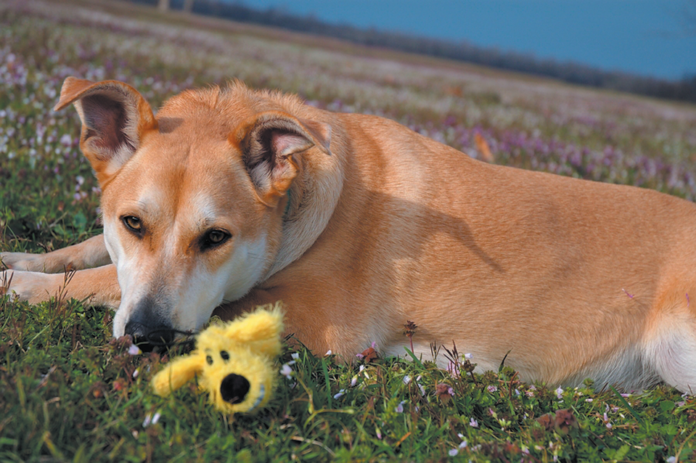Q. Please settle this one for me. My husband says dogs don’t feel guilt, but I can see it in my dog’s eyes if I catch him doing something he shouldn’t. Don’t they experience guilt if caught misbehaving?
Bonnie Williams|
Seaford, New York
A. Dear Ms. Williams,
If only dogs knew to feel guilty when they do something wrong — like putting their muddy paws on your white couch or going through the trash when you’re not home. The guilt would help them think twice before doing the “bad” thing again, right? You could reason with them.
But all you’re seeing when your dog looks at you anxiously once you’ve caught him is your own dismay reflected back at you. After all, putting dirty paws on the couch or going through the trash is perfectly acceptable in the canine world. A dog who does that has no idea it’s something he’s not supposed to do.
Barnard College researcher Alexandra Horowitz proved the point when she had dog owners tell their pets not to eat a tasty treat. She then had the owners leave the room and subsequently let some of the dogs eat the treat but others not. She didn’t tell the owners which dogs had had some of the food and which had not, though. Those dogs who were then berated by their owners for eating the treat even when they hadn’t “looked” more guilty than dogs who were not admonished by their human guardians. They clearly weren’t feeling guilty because they hadn’t done anything they weren’t supposed to. Their expressions were simply an anxious or fearful response to their owner’s displeasure.
Long story short: You can’t guilt your pet into behaving differently. If you want your dog not to do something, you have to train him by redirecting his attention and rewarding his successes with treats and warm praise. Giving him “the look” or harsh words won’t do anything because his understanding of right and wrong is different from yours. “Wrong” is not eating a delicious treat if it’s right there for the taking.





